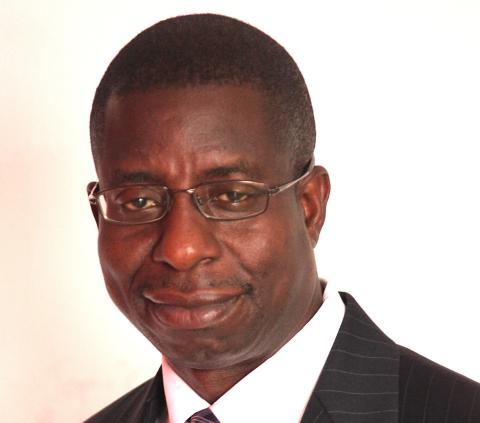
The matter is as coarse as this: LGA elections are a sham. Most often, the governor awards just about all of the seats to his party’s faithfuls and the list is sent to the state electoral commission to be rubber-stamped and announced.
When announcing the date of long-overdue local government elections in Delta State, the chairman of the state’s independent electoral commission, Mr Moses Ogbe, said, in that grating grandiloquence bordering on bombast that Nigerian public servants love so much, as follows: “Having regard to the desire of Deltans for the conduct of a smooth and hitch-free Local Government Election in the state, the commission has resolved that the elections will hold on Saturday, 25th October, 2014.” Simply put, Ogbe wished to inform Deltans that the state’s LGA elections would be held on the given date and the prevailing wish was that they reflect the will of the people. By implication, Ogbe guaranteed that he would conduct exactly that kind of election.
I very much want to believe Ogbe but I’m unable to. Not until the elections are over and the clear verdict is that they were free and fair. Which would be easy enough to tell given the manner of Nigerian politics as currently practised: the ruling party in Delta must not win all, or just about all, of the chairmanship and councillorship seats. I have never met the gentleman, Ogbe. For all I know, he may be a sincere man eager to do his bit to strengthen our fledgling, some would say floundering, democracy. The trouble with elections in our country, however, has never really been with the electoral bodies but the government in power, military or civilian, that would not allow them their independence, bent as they always are on using them to hang on to power at all costs. My scepticism about credible LG elections in Delta is borne of recent experience that shows they have become a huge joke, a cruel mockery of democracy that only those whose view of politics has been irretrievably warped by vicious power games can pass off as democratic exercises.

The matter is as coarse as this: LGA elections are a sham. Most often, the governor awards just about all of the seats to his party’s faithfuls and the list is sent to the state electoral commission to be rubber-stamped and announced. Just three recent elections will suffice for the point. Quite providentially, the practice transcends party lines. The ruling PDP did not drop a single seat, chairman’s or councillor’s, in the 2 November 2013 elections conducted by the Enugu State Independent Electoral Commission. In the 17 May LGA elections conducted by the Kano State Independent Electoral Commission, all the 44 chairmanship positions were won by the candidates of the party in power, the All Progressives Congress. In the 25 February Plateau State LGA elections, the ruling Peoples Democratic Party won all but one of the 15 chairmanship seats. The lone victory scored by the Democratic Peoples Party was considered an “upset.” State governors see LGA elections as turf wars in which no inch is to be conceded to the opposition parties.
The problem springs from an ingrained anti-democratic mindset that is a carry-over from our old and recent history of non-representative government: colonialism and military dictatorship. District or LG areas have never been truly autonomous centres of government, no matter how much the constitution flatters them, erroneously in my view, as the third tier of government. Consequently, what state governors complain of with regard to the over-reaching federal government in Abuja, they replicate, ironically, in their various state houses with respect to LGAs. The cumulative effect of endless encroachments on LGA authority has led to their becoming mere extensions of governors’ offices, run as slush fund vaults or easy cash centres under the charge of prefects who go by the telling name of interim or transition committee chairman (sole administrator under the military). Consequently, LGAs can no longer pretend to be where government is closest to the people, or organs of rural transformation. Spend 15 minutes with an LGA chairman or head of administration and you won’t fail to hear the loud whine about the inability to pay salaries, statutory allocations often barely enough to pay salaries after “deductions” at source.
No wonder, then, that LGAs can no longer perform the basic functions of waste disposal and sanitation, maintenance of markets and rural roads, and the provision of street lights, among others. But for the intervention of the Delta State Oil Producing Areas Development Commission, however shoddy in execution many of their projects are (I have photos of some road projects in my maternal hometown of Otor-Owhe), there would be no sign of government in the LGAs today. Such that the streets of Oleh, my paternal hometown, paved with interlocking bricks a mere 7-10 years ago remind me of those halcyon days when an LGA chairman could execute meaningful projects.
I have heard through the grapevine that Governor Emmanuel Uduaghan is intent on a free and fair LGA election as his parting gift to Delta State, as one incontrovertible evidence of his “finishing strong.” He does not wish, I hear, to create needless tension and animosity, assured results of rigged elections, which might mar his plan of going to the Governors’ Retirement Home (GRH) known as the Senate of the Federal Republic of Nigeria. For the sake of democracy, I hope this is the case. In two weeks’ time, we shall know whether or not it is time to abolish state electoral commissions.
Contact the writer at [email protected].